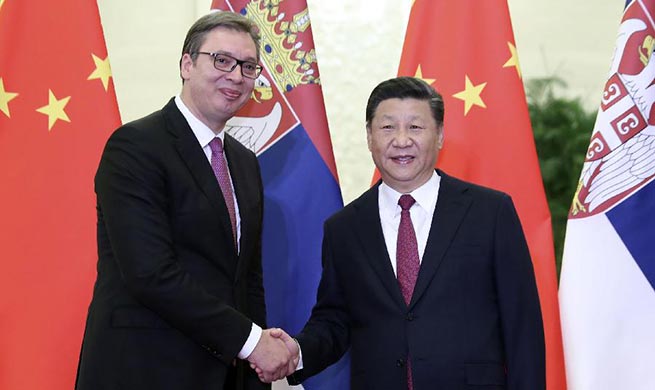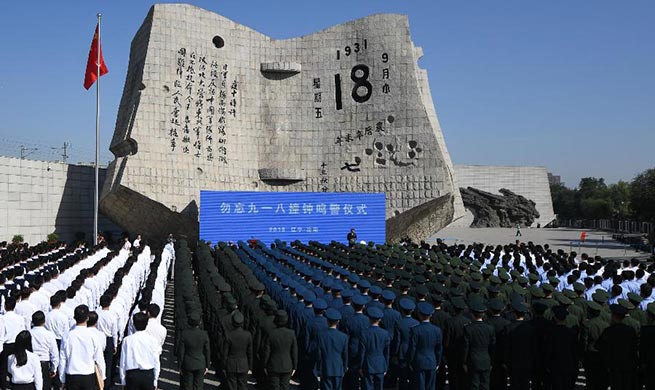TOKYO, Sept. 19 (Xinhua) -- The Bank of Japan (BOJ) opted to maintain its ultra-easy monetary policy on Wednesday while monitoring the effectiveness of its recent policy adjustment amid weak inflation.
The central bank's two-day policy meeting concluded Wednesday with the bank voting to maintain its purchases of government bonds to push the 10-year yield close to zero.
It also decided to keep its minus 0.1 percent short-term rate for some funds parked there by financial institutions.
"The current powerful monetary easing measures are still necessary to achieve our 2 percent price stability target, BOJ Governor Haruhiko Kuroda told a press conference Wednesday.
The central bank decided at a previous board meeting in July to allow long-term interest rates to move in a wider range to increase policy flexibility.
Kuroda said that its still early to judge whether the policy adjustment was a success and the BOJ would keep monitoring the effects of the policy adjustment.
Japanese Prime Minister Shinzo Abe suggested in a policy debate last week that Japan's ultra-easy monetary policy should not continue too long.
Kuroda, for his part, stressed that any exit strategy was contingent on achieving the 2 percent inflation target.
"We have to first reach 2 percent and create a condition for the exit," he said.
The BOJ has been pursuing the 2 percent inflation target since Kuroda took office in 2013 in a bid to lift Japan out of years of deflationary stagnation.
But after more than five years of aggressive monetary easing, the target remains far-flung, leading the bank to push back the time frame for achieving the goal several times and to drop the time frame from its quarterly economic outlook report earlier this year.













